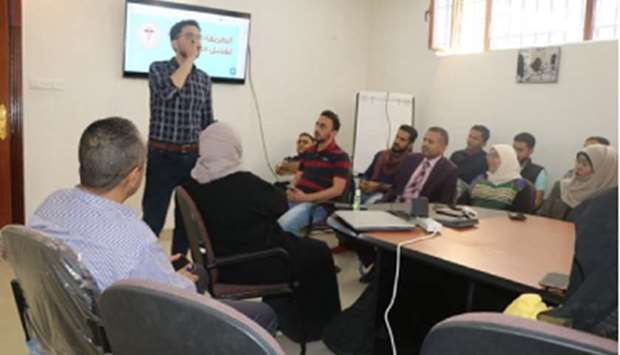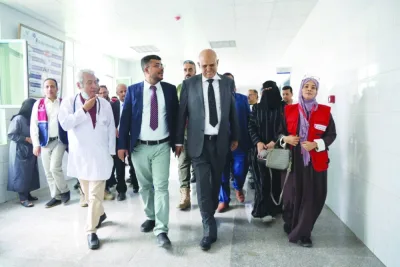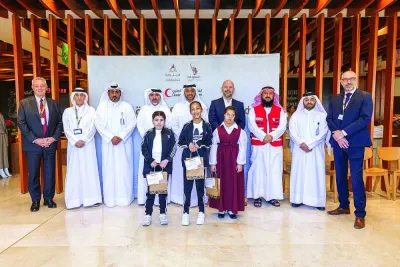The representation mission of Qatar Red Crescent Society (QRCS) held an introductory workshop on the risks and prevention of coronavirus (Covid-19), amid public uncertainty and lack of information about the disease.
Held in co-operation with the United Nations High Commissioner for Refugees (UNHCR), the workshop was attended by 50 staff of QRCS’s mission and healthcare providers.
It covered many topics on the nature of the disease, how it spreads, and how to prevent it.
The instructor of the workshop and UNHCR Health Officer Dr Mohamed A al-Jalood, said: “This workshop is important as it seeks to protect lives, reassure the participants, and highlight their role in dealing with concerns of a coronavirus spread among healthcare providers. It is crucial to give information about good health practices and inform the public through field workers”.
He commended the efforts made by QRCS to raise awareness and help thousands of beneficiaries under its healthcare project for internally displaced persons (IDPs) and other diverse projects.
“We are happy with this partnership,” said Dr al-Jalood. “We will work together with QRCS at all the phases of the IDP support project, to attain the desired goals”.
Another workshop was held at QRCS’s mission premises in Sanaa, in preparation for a project to secure shelter and nonfood items (NFIs) for vulnerable IDPs in the Qa’atabah, Al-Hussein, and Jahaf Districts of the Dhale Governorate. Under the project, 1,000 displaced families will have shelter for six months, and NFIs will be distributed to 500 families.
The projects manager, Haythem al-Dumaini, said the participants were introduced to the goals and action plan of the project.
“The registration and verification teams will receive high-standard field training, and all the teams will co-ordinate together as well as with the competent authorities,” he said.
“We also reviewed the lessons learnt from previous similar projects and discussed the applicable solutions”.
To be implemented in four governorates (Sa’dah, Taiz, Ibb, and Dhale), the project has a budget of $882,743, funded by the UN Office for the Co-ordination of Humanitarian Affairs (OCHA) Yemen Humanitarian Fund.

Introductory workshop for shelter project.


